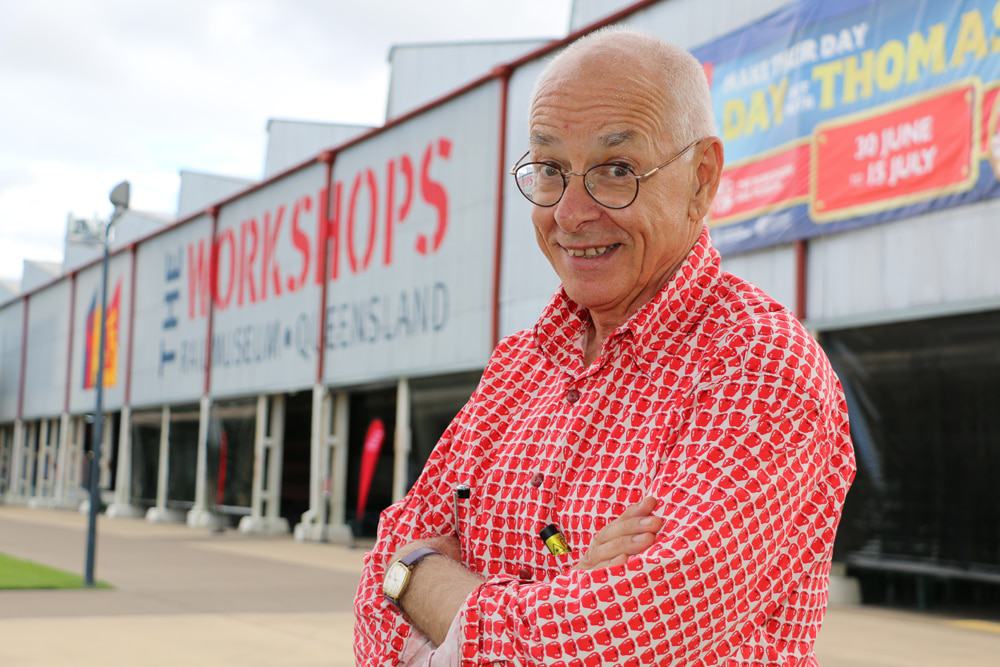
Ipswich First caught up with renowned science communicator Dr Karl Kruszelnicki as he prepared to share his love of science with 500 people at The Workshops Rail Museum on Thursday.
Encourage your child to be curious, ask questions and maybe even enter politics.
That was the advice from Australia’s most popular science communicator, Dr Karl Kruszelnicki, to Ipswich parents when he visited on Thursday.
Dr Karl was in town as part of the Queensland Museum’s World Science Festival, which for the first time this year held an event – Ipswich Extreme Moments in Science with Dr Karl – at The Workshops Rail Museum.
In recent years, STEM (Science, Technology, Engineering and Maths) has become a buzzword in education and politics.
However, Dr Karl said while science was important, it needed to be a part of the overall education package.
“The talk of STEM is a cop-out, it’s just tokenism. Science should be one of the options just like the arts, music, sports and trades,” he said.
“It’s got to be part of the package, because you need the arts because that provides you with the moral compass for knowing where you’re going.”
Dr Karl said rather than getting caught up on STEM, parents should encourage curiosity in their children and maybe even a tilt at politics.
“The purpose of the schooling system as it is now is aiming you towards university. If you’re like 50 per cent of the population and you don’t get into university, you are someone who failed what the education system is giving you to do and then suddenly you feel like a failure when in fact you’re not,” he said.
“I like the Finnish system where there’s no homework, it’s free and everybody gets the same education to year 9. And then in years 10, 11 or 12 they choose to either go into university or the trades and there is no disrespect in going for the trades.
“Remember without plumbers you do not have a civilisation.
“To make things better, I reckon that kids should (be encouraged) to go into politics.
“People should realise that you’re better off on the inside of the tent than on the outside if you want to change things.
“I have influence but I have no power. The only people in Australia who have power are the people who write the laws, the politicians. So kids, go into politics.”
Dr Karl said despite his reputation, he was not particularly intelligent but rather a hard worker with a strong sense of curiosity.
“If I was really smart I’d have a high IQ but I don’t. I’m in there with two thirds of the population between 85 and 115 IQ,” he said.
“There are so many things to know about the universe and the world; everything is big and everything is unusual.
“Things don’t make sense sometimes, you have two weights, a heavy weight and a light weight and both fall at the same speed. That is really weird.
“You go out at night and you look at the stars and there’s a thousand little dots that you can see with the naked eye. Half a dozen of them moves and the rest don’t, what’s going on?
“Because I’m not really smart I have to work hard and then I turn (what I learn) into a story and then I hand it out to the general population.
“So I guess I’ve got a knack for seeing a good story and I work hard to try and explain it for the average person.”
So how does he keep up with the many new developments in science?
“Twenty-eight years of free education followed by $10,000 worth a year of scientific literature reading. I am lucky to have made it a job. It’s like someone said to me ‘your job is to go and read’, okay thanks,” he said.


5